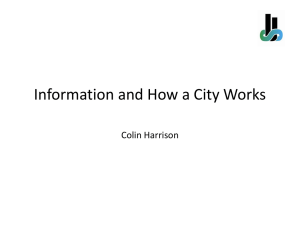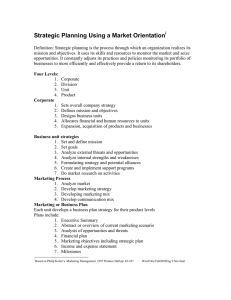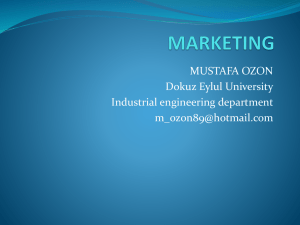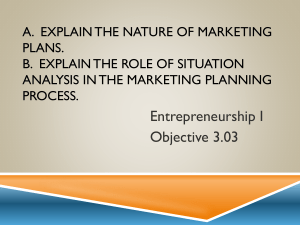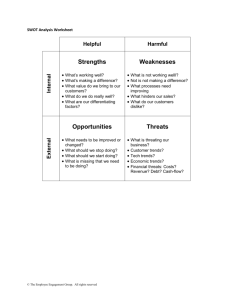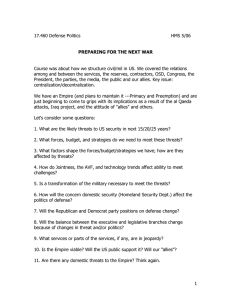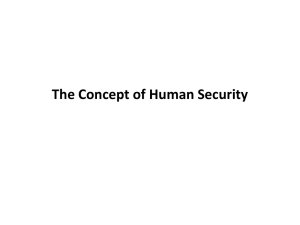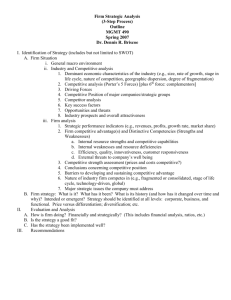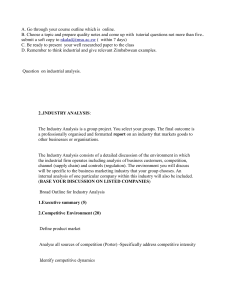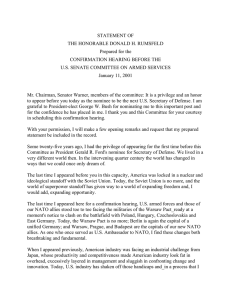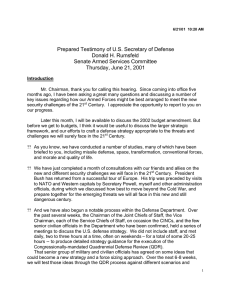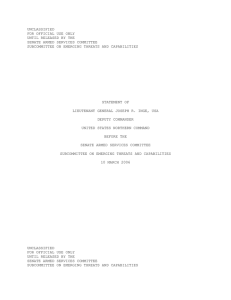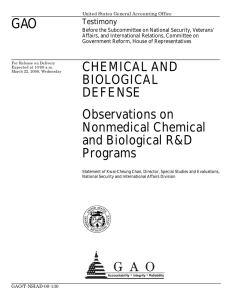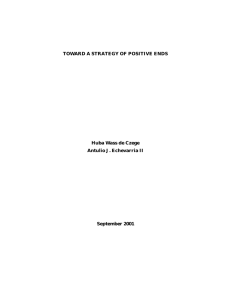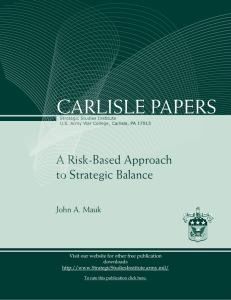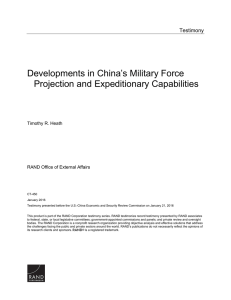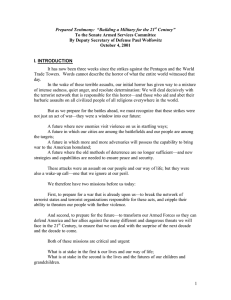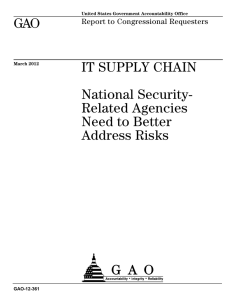PRESS RELEASE House Armed Services Committee Floyd D. Spence, Chairman O
advertisement
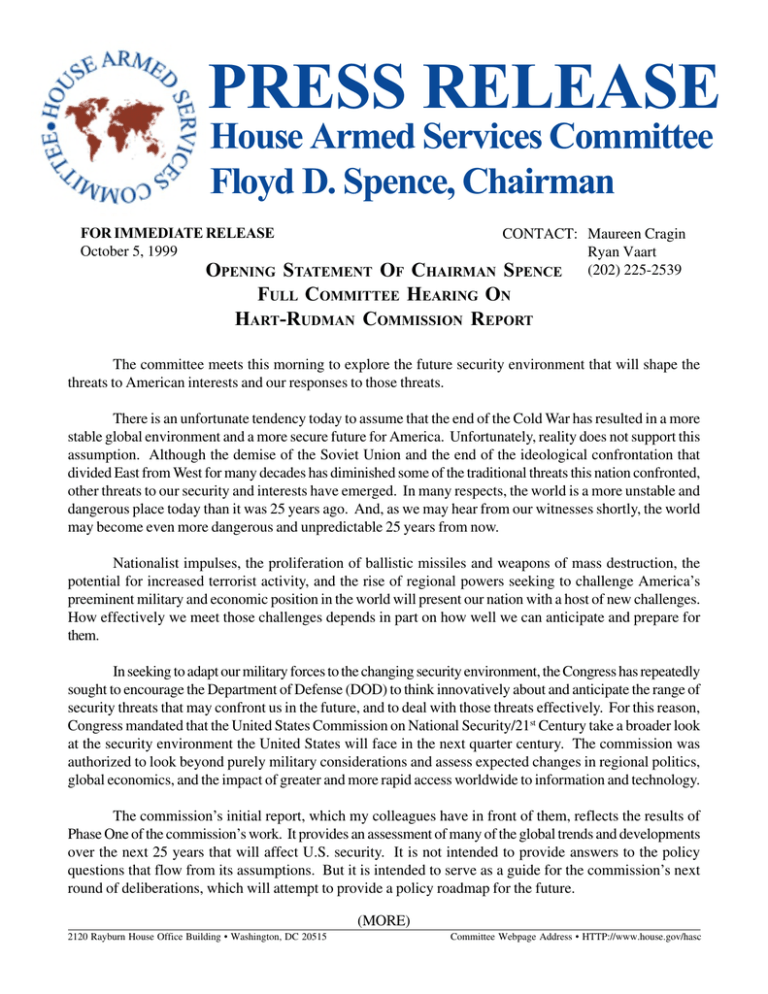
PRESS RELEASE House Armed Services Committee Floyd D. Spence, Chairman FOR IMMEDIATE RELEASE October 5, 1999 CONTACT: Maureen Cragin Ryan Vaart OPENING STATEMENT OF CHAIRMAN SPENCE (202) 225-2539 FULL COMMITTEE HEARING ON HART-RUDMAN COMMISSION REPORT The committee meets this morning to explore the future security environment that will shape the threats to American interests and our responses to those threats. There is an unfortunate tendency today to assume that the end of the Cold War has resulted in a more stable global environment and a more secure future for America. Unfortunately, reality does not support this assumption. Although the demise of the Soviet Union and the end of the ideological confrontation that divided East from West for many decades has diminished some of the traditional threats this nation confronted, other threats to our security and interests have emerged. In many respects, the world is a more unstable and dangerous place today than it was 25 years ago. And, as we may hear from our witnesses shortly, the world may become even more dangerous and unpredictable 25 years from now. Nationalist impulses, the proliferation of ballistic missiles and weapons of mass destruction, the potential for increased terrorist activity, and the rise of regional powers seeking to challenge America’s preeminent military and economic position in the world will present our nation with a host of new challenges. How effectively we meet those challenges depends in part on how well we can anticipate and prepare for them. In seeking to adapt our military forces to the changing security environment, the Congress has repeatedly sought to encourage the Department of Defense (DOD) to think innovatively about and anticipate the range of security threats that may confront us in the future, and to deal with those threats effectively. For this reason, Congress mandated that the United States Commission on National Security/21st Century take a broader look at the security environment the United States will face in the next quarter century. The commission was authorized to look beyond purely military considerations and assess expected changes in regional politics, global economics, and the impact of greater and more rapid access worldwide to information and technology. The commission’s initial report, which my colleagues have in front of them, reflects the results of Phase One of the commission’s work. It provides an assessment of many of the global trends and developments over the next 25 years that will affect U.S. security. It is not intended to provide answers to the policy questions that flow from its assumptions. But it is intended to serve as a guide for the commission’s next round of deliberations, which will attempt to provide a policy roadmap for the future. (MORE) 2120 Rayburn House Office Building • Washington, DC 20515 Committee Webpage Address • HTTP://www.house.gov/hasc In reviewing the commission’s report, which reflects the unanimous conclusions of its members, I have been struck by many of its findings. One finding, in particular, stands out to me as a stark reminder that our geographic position between two vast oceans is no longer a guarantee of sanctuary. The commission’s first main theme is that, and I quote, “America will become increasingly vulnerable to hostile attack on our homeland, and our military superiority will not entirely protect us.” The implications of this conclusion are indeed troubling. Perhaps most troubling to me is the commission contention that over the next 25 years, as a result of the proliferation of weapons of mass destruction, “Americans will likely die on American soil, possibly in large numbers.” While the commissioners have not yet passed judgment on the appropriate strategies and courses of action to guard against this future, it is no secret that I believe additional defense resources will be required to successfully avoid it. In my view, this includes developing new technologies to defend against growing threats where no effective defense exists today – missile defense, for example. If the United States wishes to remain relatively secure and a global power well into the next century, we cannot afford to remain complacent in the face of growing threats to our security. I look forward to working with the commission in the coming months as it builds upon its assumptions and to put forward policy recommendations and strategies that will allow our nation to enter the 21st century in confidence and security. Our witnesses today are certainly no strangers to the national security debate, and I would like to welcome them here. They are: · · · · Former Senator Gary Hart, co-chairman of the commission; Former Senator Warren Rudman, co-chairman of the commission; Norman Augustine, commission member and former CEO of Lockheed-Martin; and Ambassador Andrew Young, commission member and former U.S. Permanent Representative to the United Nations. ### The full report can be found at: http://www.nssg.gov/

